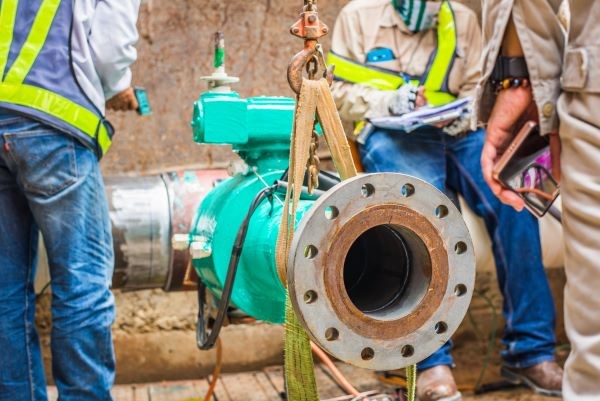NTSB Looks to Improve Pipeline Leak Detection and Mitigation
By Maddy McCarty, P&GJ Digital Editor
The U.S. National Transportation Safety Board named improving pipeline leak detection and mitigation as an item on its “Most Wanted List of Transportation Safety Improvements” for 2021-2022, the agency announced.

The five-member NTSB approved the 10 items, with the first being “Require and Verify the Effectiveness of Safety Management Systems in All Revenue Passenger Carrying Aviation Operations,” during a meeting Tuesday.
Other most-wanted safety improvements include eliminating distracting driving and preventing alcohol and other drug impaired driving. The pipeline item is listed eighth.
“All pipelines leak,” NTSB said. “Leak-detection and mitigation tools are essential and can make the difference between a minor incident and a deadly explosion. “
Pipeline systems with leak-detection systems, automatic shutoffs and remote-control values can warn operators of an imminent accident and allow for quick mitigation, the website states. NTSB identified need for these measures decades ago, but said the Pipeline and Hazardous Materials Safety Administration does not require operators to use them, and some operators won’t act without regulation.
NTSB also wants service regulators placed outside buildings rather than inside, since the latter placement can trap accumulating gas and lead to an explosion, the website states.
“Methane detection also helps mitigate consequences by alerting the public to natural gas leaks, thereby minimizing public exposure,” NTSB said. “Every day we wait to enhance our mitigation systems is a day we put the public in danger.”
Related News
Related News

- Enbridge Plans 86-Mile Pipeline Expansion, Bringing 850 Workers to Northern B.C.
- Intensity, Rainbow Energy to Build 344-Mile Gas Pipeline Across North Dakota
- Energy Transfer to Build $5.3 Billion Permian Gas Pipeline to Supply Southwest
- Enbridge Sees High Demand to Expand 593-Mile Canada-to-U.S. Gulf Oil Pipeline
- Strike Pioneers First-of-Its-Kind Pipe-in-Pipe Installation on Gulf Coast with Enbridge
- A Systematic Approach To Ensuring Pipeline Integrity
- 275-Mile Texas-to-Oklahoma Gas Pipeline Enters Open Season
- LNG Canada Start-Up Fails to Lift Gas Prices Amid Supply Glut
- Strike Pioneers First-of-Its-Kind Pipe-in-Pipe Installation on Gulf Coast with Enbridge
- Enbridge Sees High Demand to Expand 593-Mile Canada-to-U.S. Gulf Oil Pipeline




Comments